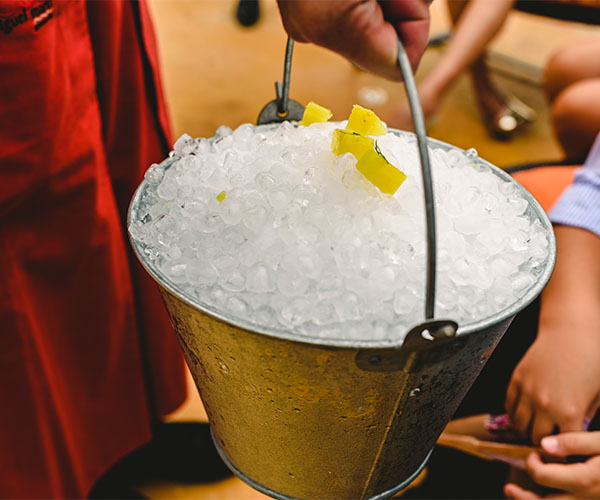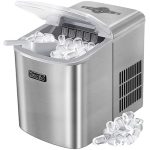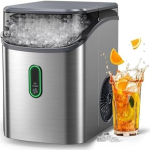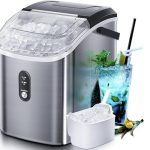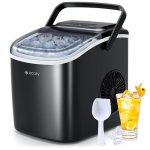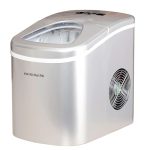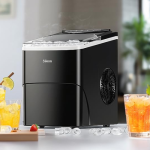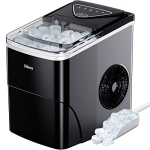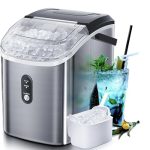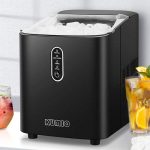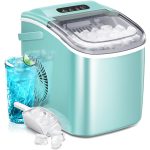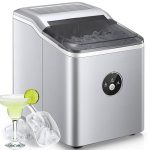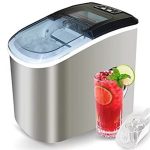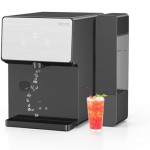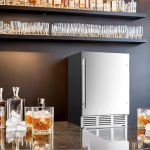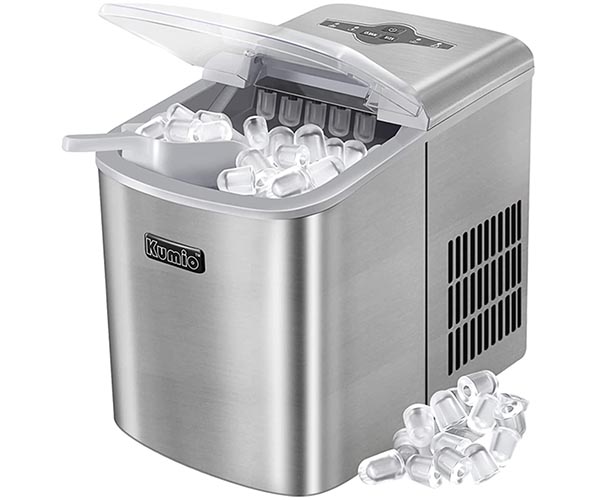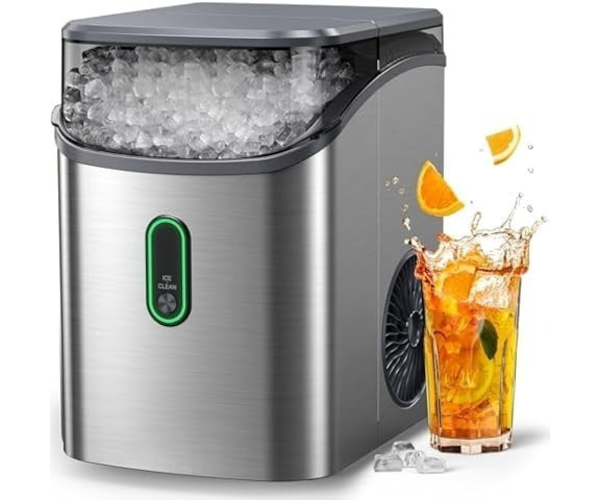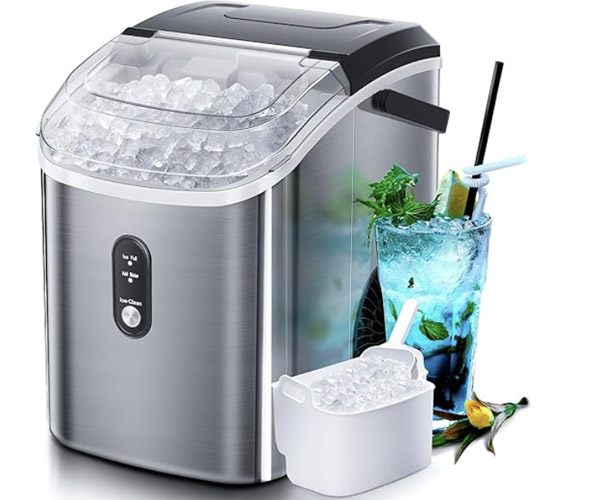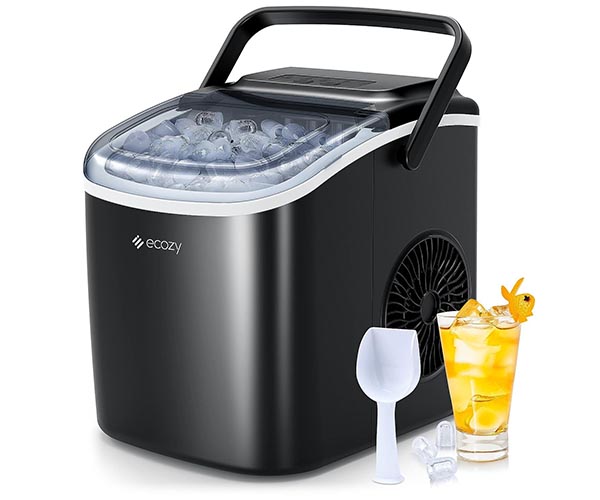Introduction
When considering how often should you clean your countertop ice maker, it’s crucial to recognize that regular maintenance is not just a recommendation but a necessity for ensuring the longevity and functionality of your appliance. Neglecting this duty can lead to significant consequences:
- Buildup of Harmful Contaminants: Not cleaning your ice maker can allow bacteria and mold to flourish, which can contaminate the ice and potentially lead to health issues for anyone consuming it.
- Decreased Machine Efficiency: Over time, mineral deposits from water can clog your ice maker’s system, reducing its efficiency and lifespan, leading to frequent breakdowns or inadequate ice production.
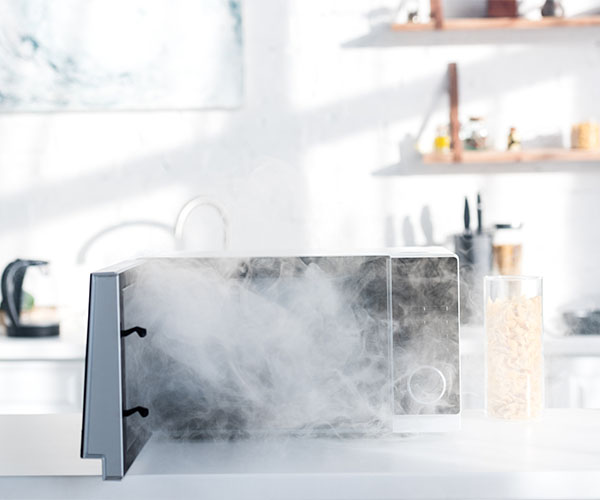
Understanding what happens if you don’t clean your countertop ice maker regularly? is key to preventing these issues and ensuring that your machine continues to function as expected. A proactive approach to maintenance can save you from future headaches and unexpected repair bills.
In the next sections, we will guide you through the recommended frequency for cleaning your ice maker, identify signs that it’s time to clean, and provide a detailed, step-by-step cleaning procedure to keep your ice maker in top condition. https://amzn.to/3WoePQf
Section 1: Risks of Neglecting Ice Maker Cleaning
Understanding how often should you clean your countertop ice maker and what happens if you don’t clean your countertop ice maker regularly? can help mitigate the risks associated with neglect. Here are the key risks:
- Bacterial and Mold Growth: Health Hazards
- Failing to clean your ice maker regularly can create a breeding ground for bacteria and mold. This not only compromises the quality of the ice but also poses serious health risks, especially in immunocompromised individuals. Regular sanitization kills harmful microbes and prevents their growth, ensuring the ice is safe for consumption.
- Mineral Buildup Affecting Functionality and Efficiency
- Hard water can leave mineral deposits in your ice maker. Over time, these deposits can build up and interfere with the machine’s mechanisms, affecting its functionality and efficiency. This buildup can lead to increased energy use and frequent repairs, significantly shortening the lifespan of your ice maker.
By maintaining a regular cleaning schedule, you can avoid these risks and ensure your ice maker operates efficiently and safely.
Section 2: Recommended Cleaning Frequency
Understanding how often should you clean your countertop ice maker? and being aware of what happens if you don’t clean your countertop ice maker regularly? are essential for maintaining the longevity and performance of your appliance. Here are some guidelines and factors that influence cleaning frequency:
- General Guidelines for Cleaning Frequency
- As a rule of thumb, it is recommended to clean your countertop ice maker every three to six months. This schedule ensures that any potential buildup of minerals and bacteria is addressed before it becomes a significant issue.
- Factors Influencing the Need for More Frequent Cleaning
- Water Hardness: The harder your water, the more minerals it contains, which can lead to faster scale buildup requiring more frequent descaling and cleaning.
- Frequency of Use: Ice makers that are used more frequently will accumulate residues faster than those used less often, necessitating more regular cleaning.
- Environmental Factors: High humidity environments can promote faster mold and bacteria growth, while dusty areas can lead to quicker accumulation of dirt and grime inside the machine.
Adhering to these guidelines and adjusting the cleaning frequency based on specific use-case factors will help prevent issues that can arise from neglecting proper maintenance.
Section 3: Signs That Your Ice Maker Needs Immediate Cleaning
Recognizing the signs that indicate how often should you clean your countertop ice maker? and understanding what happens if you don’t clean your countertop ice maker regularly? can help you maintain it properly before problems worsen. Here are some critical signs that your ice maker needs immediate attention:
- Unusual Tastes or Smells
- If the ice from your maker starts to have an off taste or odor, it’s a strong indication that mold or bacteria may be present. These contaminants can impart unpleasant flavors and smells, signaling that a thorough cleaning is overdue.
- Changes in Ice Texture or Clarity
- Ice that appears cloudy, soft, or begins to melt too quickly suggests that impurities are present in the water or the freezing process is being hindered by scale buildup inside the machine.
- Slow Ice Production
- A noticeable decrease in ice production speed can indicate that the ice maker is struggling to operate efficiently. This can be due to internal scaling, blocked filters, or other mechanical issues that cleaning can often resolve.
These symptoms suggest that a cleaning is not just necessary but urgent to prevent further damage and to ensure your ice maker continues to function effectively.
Section 4: Step-by-Step Guide to Cleaning Your Ice Maker
Maintaining a clean ice maker is essential to avoid the complications highlighted in how often should you clean your countertop ice maker? and to understand what happens if you don’t clean your countertop ice maker regularly?. Here’s how to effectively clean your ice maker:
- Preparation: Tools and Cleaners Needed
- Gather a soft cloth, a mild detergent, white vinegar or a commercially available ice maker cleaning solution, a soft brush, and clean water. These items will ensure that you can address all parts of the ice maker without damaging sensitive components.
- Detailed Cleaning Process
- Unplug the Ice Maker: Safety first—ensure the unit is off and unplugged.
- Remove All Ice and Water: Dispose of any old ice and drain the water reservoir.
- Apply the Cleaning Solution: Mix a solution of water and vinegar (or detergent) and apply it to all surfaces. For tough mineral deposits, use the soft brush to gently scrub.
- Run a Cleaning Cycle: If your model supports it, run a cleaning cycle with the vinegar solution, then another with just water to rinse any residue.
- Wipe Down and Dry: Use the cloth to wipe down the interior thoroughly. Ensure the ice maker is completely dry before plugging it back in.
- Tips for Thorough Sanitization
- Regularly sanitize the external touchpoints and removable parts, such as the ice scoop and storage bin, to prevent the spread of bacteria.
- After cleaning and before first use, consider running a couple of cycles and discarding the made ice to ensure that any lingering cleaning solution is thoroughly flushed out.
Following these steps will help ensure that your ice maker remains clean and functional, preventing the issues associated with neglect.
Section 5: Maintaining Your Ice Maker Post-Cleaning
Proper maintenance is key to ensuring that your ice maker remains in good working order between more thorough cleanings. Here’s how to maintain your ice maker daily, weekly, and monthly, while considering how often should you clean your countertop ice maker? and what happens if you don’t clean your countertop ice maker regularly?:
- Daily and Weekly Maintenance Tips
- Daily: Inspect the ice quality each time you use the machine. Remove any clumps and dispose of old ice. Wipe down the exterior surfaces and touchpoints with a damp cloth to keep them clean and hygienic.
- Weekly: Check the water filter (if applicable) and replace it according to the manufacturer’s schedule to ensure optimal ice quality and machine performance.
- Monthly Check-Up Routines
- Once a month, conduct a more thorough check. Look for any signs of wear or leaks. Ensure that the area around the vents is clear of any debris that could obstruct air flow and affect the machine’s efficiency. It’s also a good practice to sanitize the internal parts lightly with a vinegar solution to prevent any buildup before it starts.
These maintenance routines are designed to keep your ice maker clean, efficient, and functional, helping to prevent the issues that can arise from neglect and ensuring the longevity of the appliance. https://amzn.to/3WoePQf
Section 6: The Consequences of Neglect
Neglecting the maintenance of your countertop ice maker can have both immediate and long-lasting effects. Understanding how often should you clean your countertop ice maker? and what happens if you don’t clean your countertop ice maker regularly? can help you avoid these negative outcomes:
- Short- and Long-Term Impacts on the Machine
- Short-Term: Ignoring regular cleaning can lead to poor ice quality, including bad tastes and odors, or even machine malfunctions like ice jams and reduced ice production.
- Long-Term: Over time, significant mineral buildup and corrosion caused by persistent neglect can damage critical components, potentially leading to irreversible damage and a complete system failure.
- Cost Implications of Replacements and Repairs
- Failing to maintain and clean your ice maker can result in costly repairs. For example, replacing clogged filters or repairing motors can be expensive. Moreover, if the damage is severe, you might need to replace the entire unit, which is far more costly than regular maintenance.
By adhering to a regular cleaning schedule, you can avoid these costly repairs and replacements, ensuring your ice maker continues to function efficiently for years.
RFQs on What happens if you don’t clean your countertop ice maker regularly?
- How often should I clean my countertop ice maker? You should aim to clean your countertop ice maker every three to six months to ensure optimal performance and hygiene. If you use it more frequently, or if your water has high mineral content, consider cleaning it monthly.
- What cleaning solution should I use for my ice maker? A mixture of one part white vinegar to one part water is an effective and natural cleaning solution for ice makers. For more thorough cleaning, commercially available ice maker cleaning solutions can also be used and are often designed to tackle mineral build-up effectively.
- Can mineral build-up damage my ice maker? Yes, mineral build-up from hard water can lead to scaling, which can clog the water lines and reduce the efficiency of your ice maker. Regular descaling with appropriate cleaning agents can prevent this buildup and extend the lifespan of your appliance.
- What are the signs that my ice maker needs cleaning? Signs that your ice maker needs cleaning include smaller than usual ice cubes, ice with an unpleasant taste or odor, and reduced ice production. These symptoms suggest that it’s time to clean your ice maker to maintain its performance.
- What happens if I don’t clean my ice maker regularly? Neglecting to clean your ice maker can lead to bacterial and mold growth, which can contaminate the ice and pose health risks. Additionally, mineral build-up can impair the machine’s function and efficiency, potentially leading to costly repairs or replacement.
- Can I use tap water in my countertop ice maker? Yes, you can use tap water in your ice maker, but for the best taste and to minimize the need for frequent cleanings, it’s advisable to use filtered or bottled water, especially if your tap water is hard or has a high mineral content.
These FAQs provide essential information for maintaining your ice maker, ensuring it operates efficiently and continues to produce high-quality ice.
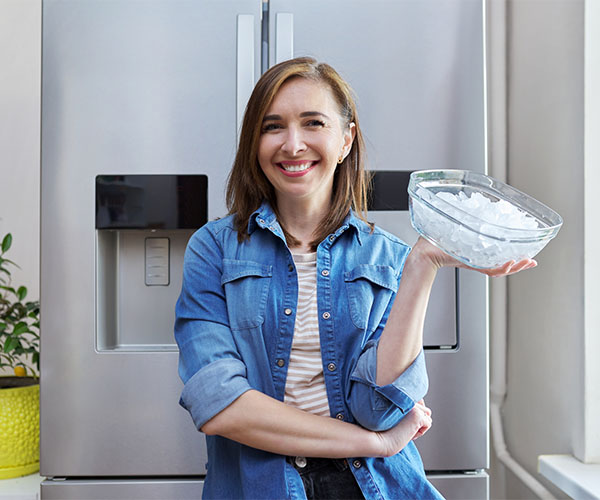
Conclusion
As we’ve explored throughout this guide, the answers to how often should you clean your countertop ice maker? and what happens if you don’t clean your countertop ice maker regularly? highlight the critical nature of regular maintenance. Here’s a brief recap and encouragement to keep up with your cleaning schedule:
- Recap of the Importance of Regular Cleaning
- Regular cleaning ensures that your ice maker operates efficiently, producing high-quality ice free from contaminants such as bacteria and mold. It also prevents mineral build-up that can damage the machine and lead to costly repairs.
- Encouragement to Adhere to a Cleaning Schedule
- For the health of your household and the efficiency of your appliance, sticking to a regular cleaning schedule is essential. Set reminders if necessary to ensure that you don’t forget this important task. Regular maintenance not only extends the life of your ice maker but also ensures it performs at its best.
Maintaining your ice maker isn’t just about following a routine; it’s about ensuring that every cube of ice it produces is safe and refreshing. Start marking your calendar and keep your ice maker in peak condition for years to come.
Call to Action
Now that you know how often should you clean your countertop ice maker? and understand what happens if you don’t clean your countertop ice maker regularly?, we’d love to hear from you! Share your own ice maker cleaning tips and schedules on social media to help others maintain their appliances effectively. Use the hashtag #IceMakerClean to join the conversation and see what strategies others are using. Your insights could make a big difference in someone else’s routine, ensuring they enjoy clean, safe ice every time. https://amzn.to/3WoePQf
References
- GE Profile Opal Nugget Ice Maker Product Page
- NewAir Countertop Ice Maker Product Page
- Igloo ICEB26HNBK Portable Electric Countertop Ice Maker Product Page
- Scotsman SCN60PA-1SS
- EUHOMY Nugget Ice Maker Countertop
- Silonn Ice Maker Countertop
Additional Resources
- [How often should you clean your countertop ice maker?]
- [What happens if you don’t clean your countertop ice maker regularly?]
- [How does a countertop ice maker work?]
- [How to install a countertop ice maker?]
- [How often to descale a countertop ice maker?]
- [Buying Guide: Countertop Ice Makers with Water Line Connection]
- [Kitchen Upgrade Ideas: Countertop Ice Makers with Water Line]
- [Which countertop ice maker with freezer is best?]
Let’s build a community that values cleanliness and efficiency in our kitchen appliances. Share your story today!

